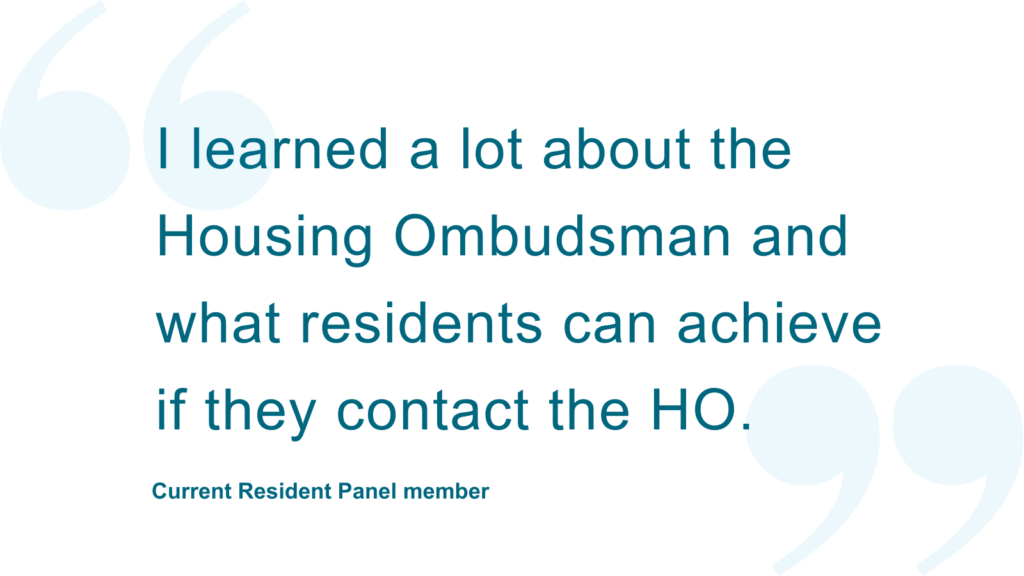Resident Panel
This page provides information on how the Housing Ombudsman Service Resident Panel is formed and how we use it to improve the service we provide.
On this page
What is the Housing Ombudsman Resident Panel?
The Housing Ombudsman Resident Panel is an exciting opportunity for residents to be involved in the development of our service.
Resident Panel members give us feedback on their own experiences of complaining to their landlord and accessing our service.
What do the panel do?
1. Share their experiences
The Resident Panel tell us about their experiences to help us identify areas where services can be improved and help us make sure residents are at the centre of our work.
2. Shape our service
The panel attend regular meetings with the Ombudsman and have their say via short surveys, consultations, and virtual discussions to give residents a voice in everything we do.
3. Learn more about the Housing Ombudsman
Hear about the work we are doing to improve landlord services and how it will positively impact residents living in social housing.
4. Talk to others
As a Panel member, you can help us reach residents in your local community and raise awareness of the service to make sure our service is accessible to all residents that live in social housing.
How does the Resident Panel work?
Panel members will be appointed for a 3 year term, which started in May 2024 and will end in May 2027.
Panellists will be invited to attend a minimum of 2 online meetings each year to discuss our approach to key areas of the work we do, such as our annual business plan and focused reports into complaint issues we are seeing in cases brought to the service for investigation.
There are opportunities for discussion and to take part in smaller group activities. Members will also be asked for their views through surveys and questionnaires.
We will never discuss individual cases at a panel meeting.
Who can be a member of the Resident Panel?
Residents of social housing landlords that live in England can apply to join the panel.
We want the membership of the panel to represent the diversity of England’s social housing population, with representation from across a range of demographics and protected characteristics.
Current Resident Panel membership
Helpful information for Resident Panel members
Resident Panel Charter
This Charter outlines how the panel works. Including how members are chosen, the role and responsibilities of a panel member, and how meetings are held.
Resident Panel membership
The page provides a breakdown of the existing panel membership including regional membership breakdown and percentage of members by landlord type.
Privacy Notice
This Privacy Notice is to let applicants and members of the Housing Ombudsman Resident Panel know how we process personal data.
Resident Panel acceptable use
Every member of the panel has the right to feel heard and respected, and by following our acceptable use guide we can ensure this is the experience for everyone.
How do Resident Panel meetings work?
This information is to let you know how the online panel meetings will work including information on how to use Zoom.
Accessibility statement
Read about the ways we make our service more accessible and the tools available to support you in our accessibility statement.



